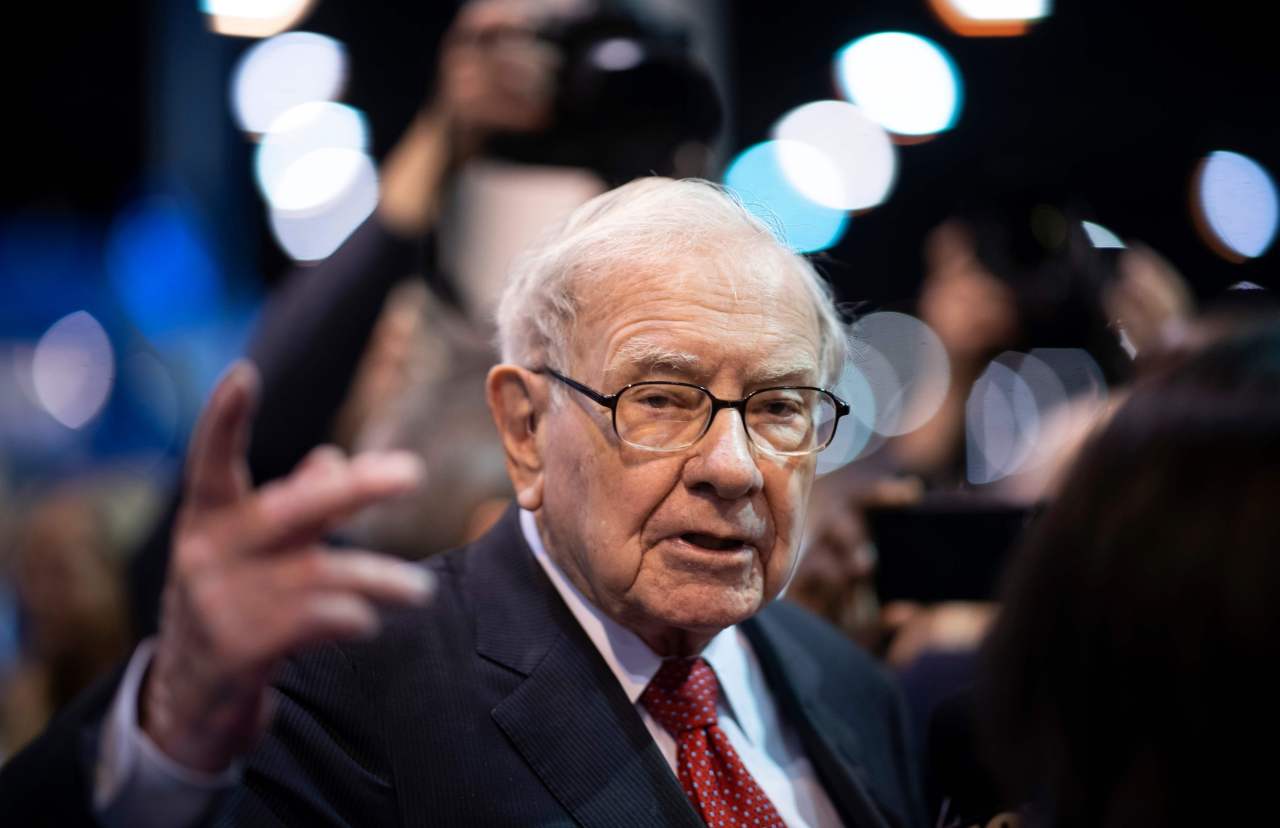Warren Buffett’s stock unload dampens outlook for S. Korean banks
By Jung Min-kyungPublished : May 18, 2020 - 17:02

South Korea’s major financial groups and their flagship lenders are projected to exhibit weaker performances this year, analysts said Monday, as they were rattled by Warren Buffett’s recent offloading of big bank stocks coupled with new circumstances under the COVID-19 crisis.
Following reports of the Berkshire Hathaway CEO’s unloading of airlines and big bank stocks such as Goldman Sachs and US Bancorp last week, share prices of four major banking groups here -- Shinhan, KB Kookmin, Hana and Woori -- all slipped by more than 1 percent from the previous session on Monday.
The news apparently added to the major banking stocks’ downward spiral here as they all plummeted by an average of 30 percent since the beginning of the year as of Monday, data from the main bourse operator Korea Exchange (KRX) showed.
Risks stemming from COVID-19, which triggered the Bank of Korea’s first emergency rate cut in over a decade by half a percentage point to a new record low of 0.75 percent in March, led to a noticeable dip in lending rates on loans.
Traditional South Korean banks continue to make most of their revenue from interest on loans, allowing the record-low interest rate to affect their balance sheets.
Analysts expressed divided opinions on the local bank stocks with some hopeful and others recommending a wait-and-see mode.
“With the prices plummeting, it is an attractive time to purchase bank stocks,” said Yoo Seung-chang, an analyst at KB Securities.
“South Korea has been dealing smoothly with the pandemic, which will lead to an improvement in the banks’ performances,” he added.
Reflecting their attractive prices, individual investors have been on a buying spree of local banking group stocks in recent weeks, KRX data showed.
But Seo Sang-young, a researcher at Kiwoom Securities warned that the banking sector has been and will be easily affected by the latest pandemic and local lenders are likely to be hit with additional credit costs in the second quarter like the US banks.
On top of it, local banks have been readjusting their employee evaluation system and lowering goals of their key performance indicators, for employees burdened by sales performance under the current circumstances. This would lessen the burden for the employees, but is likely to deal a blow to its performance for this year, which has been already hit by COVID-19.
Warren Buffett’s Berkshire Hathaway sold off 84 percent of its stake in Goldman Sachs and reduced its JPMorgan Chase & Co. position by 3 percent during the first quarter, recent regulatory filing showed.
Onlookers were concerned by his move to offload a longtime holding which Buffett famously invested $5 billion into during the 2008 financial crisis, saying that it may suggest a further pain for the US and the global economy.
Banking groups overall posted robust performances last year with most of their earnings surging by nearly 50 percent on-year.
By Jung Min-kyung (mkjung@heraldcorp.com)








![[Graphic News] More Koreans say they plan long-distance trips this year](http://res.heraldm.com/phpwas/restmb_idxmake.php?idx=644&simg=/content/image/2024/04/17/20240417050828_0.gif&u=)
![[KH Explains] Hyundai's full hybrid edge to pay off amid slow transition to pure EVs](http://res.heraldm.com/phpwas/restmb_idxmake.php?idx=644&simg=/content/image/2024/04/18/20240418050645_0.jpg&u=20240419100350)








![[KH Explains] Hyundai's full hybrid edge to pay off amid slow transition to pure EVs](http://res.heraldm.com/phpwas/restmb_idxmake.php?idx=652&simg=/content/image/2024/04/18/20240418050645_0.jpg&u=20240419100350)

![[Today’s K-pop] Illit drops debut single remix](http://res.heraldm.com/phpwas/restmb_idxmake.php?idx=642&simg=/content/image/2024/04/19/20240419050612_0.jpg&u=)